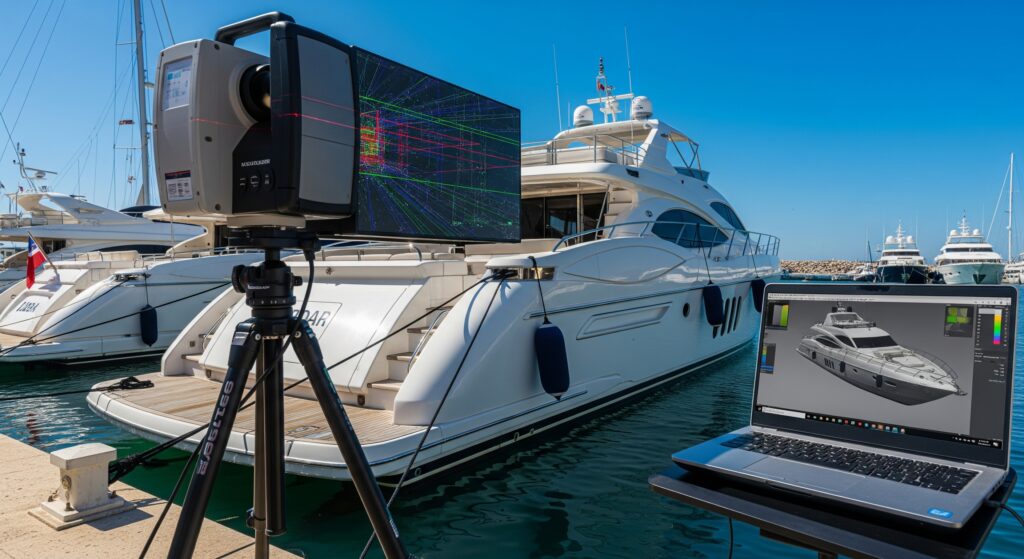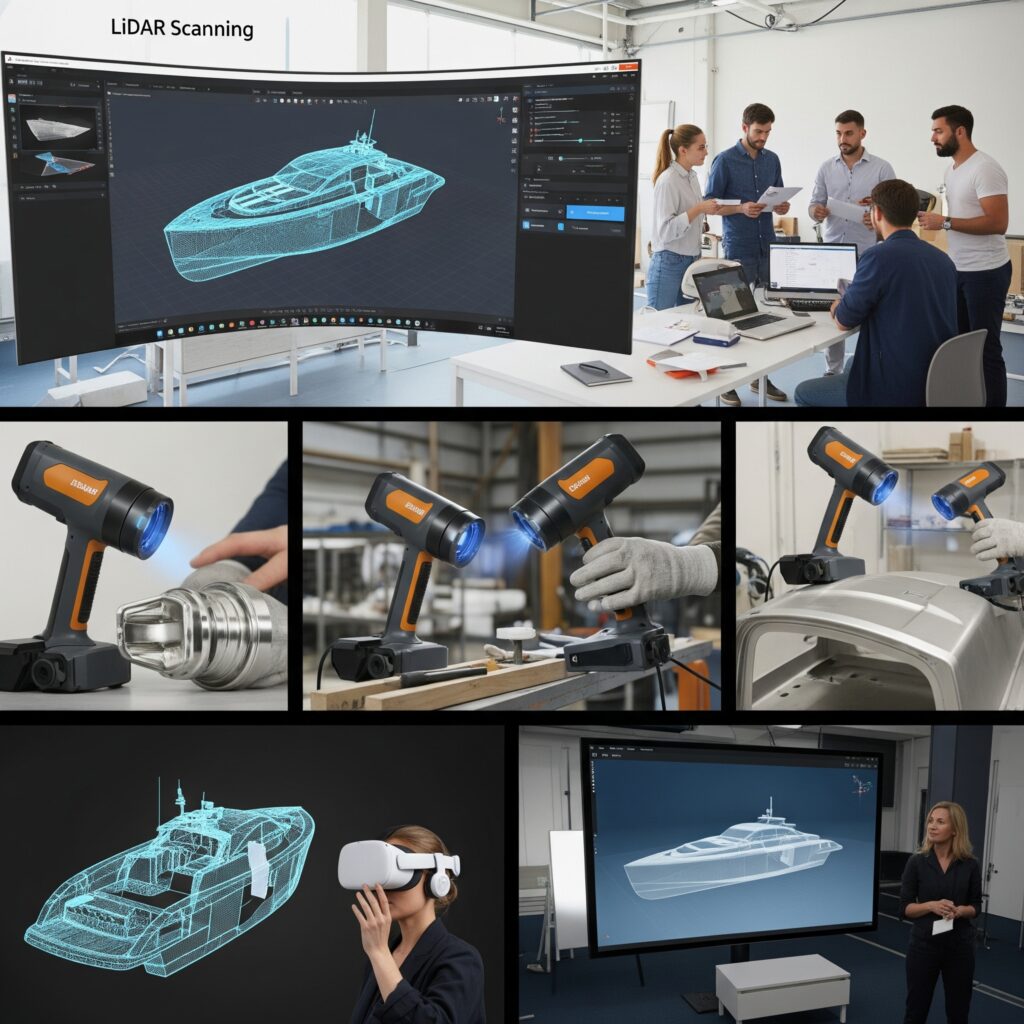In the competitive marine industry, staying ahead of the curve is paramount. For boat dealers and manufacturers, this means leveraging cutting-edge technology to enhance sales, streamline operations, and deliver unparalleled customer experiences. Enter LiDAR scanning, a revolutionary technology that is transforming how boats are designed, built, and sold.
Lidar (Light Detection and Ranging) scanning captures the precise dimensions and intricate details of a boat’s structure with millimeter accuracy, creating highly detailed and dimensionally accurate 3D models. This “digital twin” offers a significant leap forward from traditional measurement techniques, providing a versatile tool with a multitude of benefits for both dealers and manufacturers.
For Boat Dealers: A New Wave of Sales and Marketing
For boat dealerships, the advantages of Lidar-scanned 3D models are most apparent in revolutionizing the sales and marketing process.
3D Digital Sales Room – Immersive Virtual Tours: Imagine allowing a potential buyer, hundreds of miles away, to walk through a yacht with unprecedented realism. Lidar-based 3D models create immersive virtual tours that are far more than just a collection of 360-degree photos. Users can freely navigate every deck, explore cabins, and even take measurements of spaces, all from their computer or mobile device. This level of engagement can significantly shorten the sales cycle by providing customers with the confidence and detailed understanding they need to make a purchasing decision.
3D Boat Viewer – Accurate and Detailed Online Listings: High-quality, accurate 3D models elevate online boat listings from simple advertisements to comprehensive digital brochures. By showcasing every angle and detail of a vessel with pinpoint accuracy, dealers can build trust and transparency with potential buyers. This precision is especially crucial for pre-owned sales, where documenting the exact condition of the boat is essential.

For Boat Manufacturers: Precision from Design to Delivery
For boat manufacturers, the benefits of Lidar scanning extend throughout the entire production lifecycle, from initial design to final quality control.
Enhanced Design and Engineering: Lidar scanning of existing hulls or mock-ups provides naval architects and engineers with incredibly precise data to work with. This eliminates the inaccuracies inherent in manual measurements and allows for more efficient and innovative design iterations. The detailed point cloud data generated by Lidar can be seamlessly integrated into CAD software, accelerating the design process and ensuring a perfect fit for all components.
Improved Quality Control: By scanning production parts and entire vessels, manufacturers can compare the “as-built” reality with the original design specifications. This allows for the early detection of any deviations or imperfections, ensuring the highest level of quality control and reducing costly rework. The accuracy of Lidar ensures that every boat leaving the factory meets the most stringent standards.
Streamlined Refits and Repairs: When it comes to refits and repairs, accurate as-built data is invaluable. Lidar scanning can quickly and accurately capture the existing conditions of a vessel, providing a precise roadmap for modifications. This eliminates the need for time-consuming and often inaccurate manual measurements, leading to faster turnaround times and more accurate cost estimates.
Creation of Accurate Molds and Tooling: For manufacturers utilizing molds in their production process, Lidar scanning offers a method to verify the accuracy of existing molds or to reverse-engineer parts for which no original plans exist. This ensures that every hull and component produced is a perfect match.
In conclusion, the adoption of Lidar scanning and the resulting high-fidelity 3D models offers a distinct “precision advantage” to both boat dealers and manufacturers. From creating captivating sales experiences to ensuring manufacturing excellence, this technology is setting a new standard for accuracy and detail in the marine industry. By embracing the power of Lidar, businesses can not only enhance their products and services but also navigate the future of the industry with greater confidence and success.

